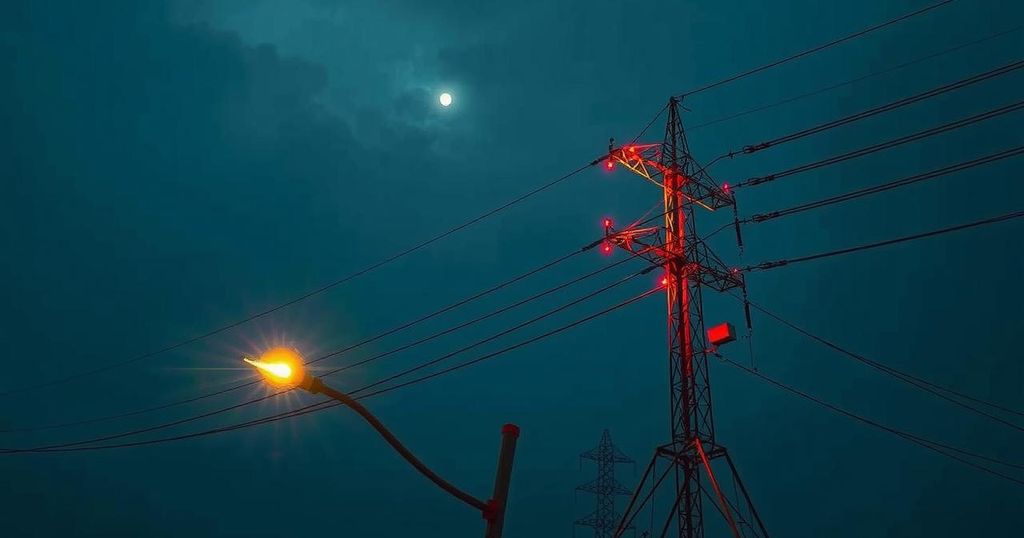Hurricane Rafael has caused a complete power outage across Cuba for the second time in two weeks. The Category 3 hurricane inflicted substantial damage, particularly to agriculture and infrastructure, leaving many residents without shelter or food. The Cuban government is mobilizing military assistance for recovery efforts amid widespread skepticism regarding its effectiveness in addressing the crisis.
The entire island of Cuba is experiencing a complete power outage, the second in two weeks, following the devastation caused by Hurricane Rafael. This Category 3 storm brought with it powerful winds that measured up to 185 km/h (115 mph), leading to significant damage to the agricultural sector and infrastructure across the region. Residents of Havana reported downed trees and damaged buildings, prompting the local government to mobilize military support for recovery efforts. As people ventured outside to assess the aftermath, they found streets largely dry, despite the storm’s impact, which primarily affected the western areas known for their tobacco production. With businesses and schools closed, many Cubans expressed despair over the loss of homes and food due to the absence of electricity. Authorities grounded flights at major airports, further complicating the situation. Having already faced a similar blackout due to failing thermoelectric plants just weeks prior, many residents expressed frustration and distrust in their government’s ability to provide essential services. “I am desperate, I am homeless. The roof is gone and I don’t know what I’m going to do,” shared Marta Leon Castro, highlighting the emotional toll the hurricane has inflicted. Cubans are grappling not only with immediate loss but also with a recurring sense of crisis, as the nation prepares for a historically active hurricane season. The National Oceanic and Atmospheric Administration expects significant storm activity in the coming months. Rafael emerges as the 17th named storm of the season and underscores the vulnerability of Cuba’s aging infrastructure and dependency on external resources for timely recovery operations.
Cuba is historically susceptible to tropical storms and hurricanes due to its geographic location in the Caribbean. The recent Hurricane Rafael’s aftermath highlights systemic vulnerabilities, as the island contends with an aging electrical grid and decayed infrastructure that struggle to withstand natural disasters. With a government constrained by economic limitations and deteriorating international relations, particularly with the United States, recovery efforts face numerous challenges. Cubans remain reliant on external aid and face uncertainty regarding their government’s capacity to respond adequately to such recurring emergencies, further exacerbated by the effects of climate change.
In conclusion, the widespread power outage in Cuba following Hurricane Rafael reflects a multi-faceted crisis stemming from severe natural disasters and compounded by infrastructural weaknesses and economic difficulties. Residents are left grappling with uncertainty and despair, showing a growing mistrust in the government’s ability to provide essential services. Moving forward, the lessons from this hurricane season underscore the urgent need for infrastructural improvements and crisis preparedness to safeguard the welfare of the Cuban populace in the face of increasing climate threats.
Original Source: www.aljazeera.com






